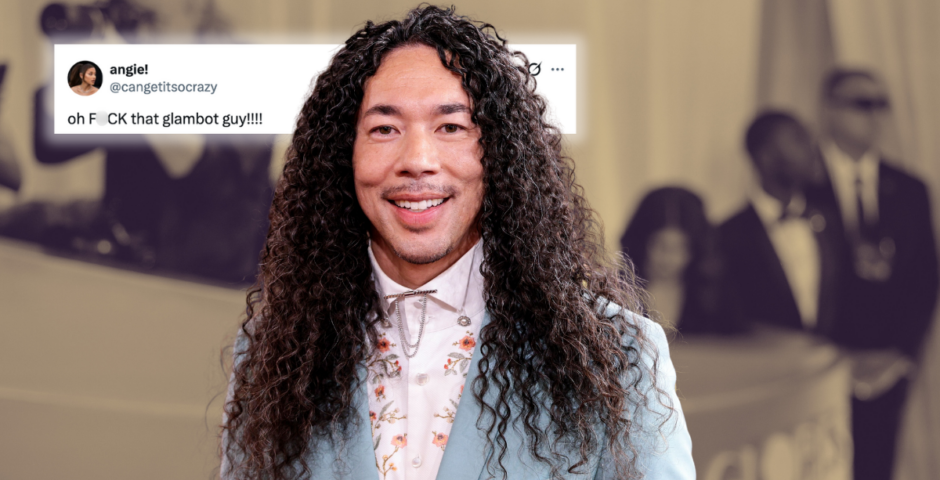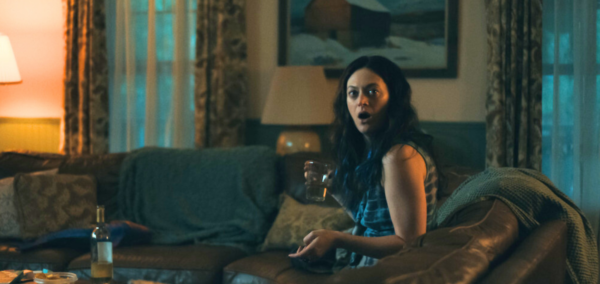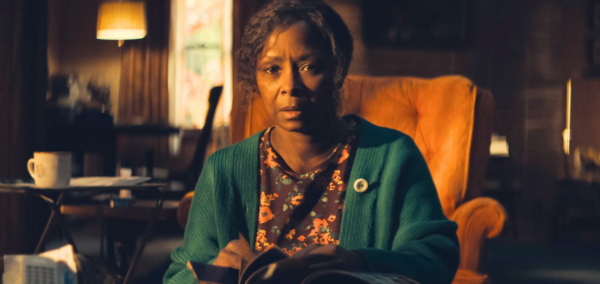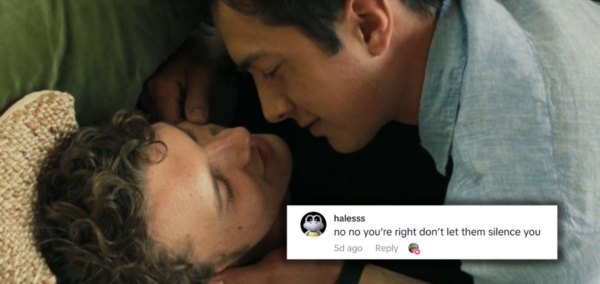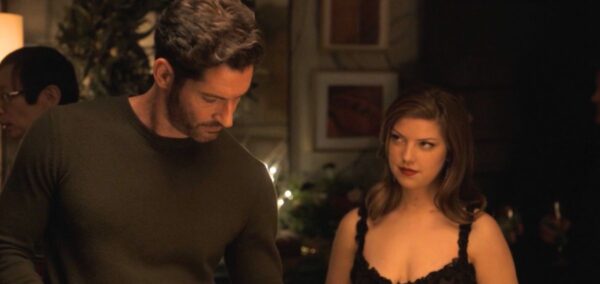
Review: Emma
A Jane Austen Reimagining (Sort Of)
Let’s begin with the obvious: if you title your play “Emma”, I’m going to assume we’re doing “Emma”. You know—Emma, Emma. Jane Austen’s “Emma”. Miss Woodhouse, Knightley, all that matchmaking nonsense. The picnic scene, the Box Hill drama, the bit where she insults Miss Bates and feels morally crushed.
Not unreasonable expectations I would argue? Instead, what we got was an experimental semi-biographical reconstruction of Jane Austen’s life (maybe?), told through a series of monologues, disjointed sequences, and a brief 90-second re-enactment of the opening scene of Emma that never returned.

Image Credits: Louisa Hailey
I was so excited when that single “Emma” scene popped up. After a slow and slightly wooden opening, suddenly—oh! Emma is actually here. The actress playing her (more on her in a moment) strode in, owned the stage, and seemed poised to carry us somewhere—anywhere—near a coherent narrative arc. But no. It was a tease, a single star in an otherwise Emma-less sky.
The actress who played Jane (Kohuné Aziz-Kamara) brought an earnestness to her performance that showed a genuine commitment to the role. There were moments where her delivery felt slightly stilted, as though she hadn’t quite settled into the rhythm of the script—but this could just as easily reflect the awkwardness of the dialogue she was given, which didn’t serve her well. She clearly understood the emotional arc her character was meant to take; she delivered a very compelling role.
Most Read
Now, let’s talk about the script. Because this cast was doing everything they could with a text that, to be polite, was not helping them. The overall effect was akin to watching a rehearsal for lots of different things accidentally booked on the same night. It wanted to be a love story, a feminist manifesto, a commentary on erasure, a reclamation of narrative agency, and a meta-theatrical examination of authorship. That’s five plays, and I regret to inform you we got approximately 20 per cent of each.

Image Credits: Louisa Hailey.
The actors, to their immense credit, soldiered on like real troupers. Special mention—nay, a standing ovation in my soul—to the actress playing Emma (Sophia O’Callaghan) herself. She was nothing short of radiant: Charismatic, sexy, emotionally tuned-in, and tragically underused. I repeat- Underused. You cannot cast someone that good and then relegate her to the margins while we listen to yet another dramatic voiceover about the power of female storytelling. Let her tell a story! Let her be the story! I would’ve happily watched her monologue for two hours if it meant we got to actually stay with her character.
Then there’s Rosie Nicol, playing Thomas Lefroy. Oh, Rosie. For those of you who saw the recent Cambridge production of Doctor Faustus, you’ll remember Rosie as the spellbinding, deeply magnetic presence who played a part in the ensemble. The same is true here. Much like in Faustus, she had barely any lines, but every time she appeared onstage, the air changed. What she didn’t have in words, she had in innuendo, and really did make use of that.
There was undeniable romantic chemistry between her and Emma, which the play acknowledged just enough to tantalise and then promptly ignored for the remainder of the runtime. If the script had just leaned into that relationship, even a little, it could’ve given us something emotionally rooted. Instead, it floated somewhere above us, gesturing vaguely at connection and sexuality without ever actually committing to a beat.
Somebody write a lesbian reimagining of Austin’s Emma with these two actresses in it, bang I’m sold, I’m there, give me date, time and place, because I’ll come and see it.

Image Credits: Louisa Hailey.
The production was aesthetically promising. The set was great and the use of lighting was effective. Yet, I couldn’t shake the feeling that the direction, like the script, was locked in a struggle between reverence and rebellion. Did we want to honour Austen or rewrite her? Were we supposed to view the characters as historical figures, literary inventions, or metaphors for contemporary womanhood? Were we inside Jane Austen’s mind, watching her memories spiral, or was it a kind of fanfiction memoir? The play didn’t decide. So, neither could we.
There’s a real shame here, because the cast was capable of something great. It’s like watching professional athletes compete in a potato sack race. Everyone’s doing their best, but the constraints are… well, not exactly optimal.
I don’t want this to sound like I had a bad time. I didn’t. I laughed a lot (the lines had a self-aware absurdity that landed well) and admired the wide range of performances. There is joy in watching talented people fight against the current, and they did fight. It’s just that, by the end, I was tired. Tired of being promised emotional payoff and not receiving it. Tired of symbolic gestures masquerading as character development. Tired of being intellectually teased with Austen and never invited to watch the actual novel.
Still, three stars. Because Cambridge student theatre is hard. Because the performers were great. Because Emma deserves her own show immediately, and I’d give five stars to that in advance. I do wholeheartedly believe that ambitious, messy, overstretched work is still better than safe, boring work. Just… maybe next time, call it something else. Like “Jane!”, or “The Slight Presence of Emma”, or “Two Lesbian Glances and a Monologue”.
3/5
Emma is showing at the Corpus Playroom from Tuesday 20th – Saturday 24th May. Get your tickets here.
Featured image credits: Louisa Hailey





